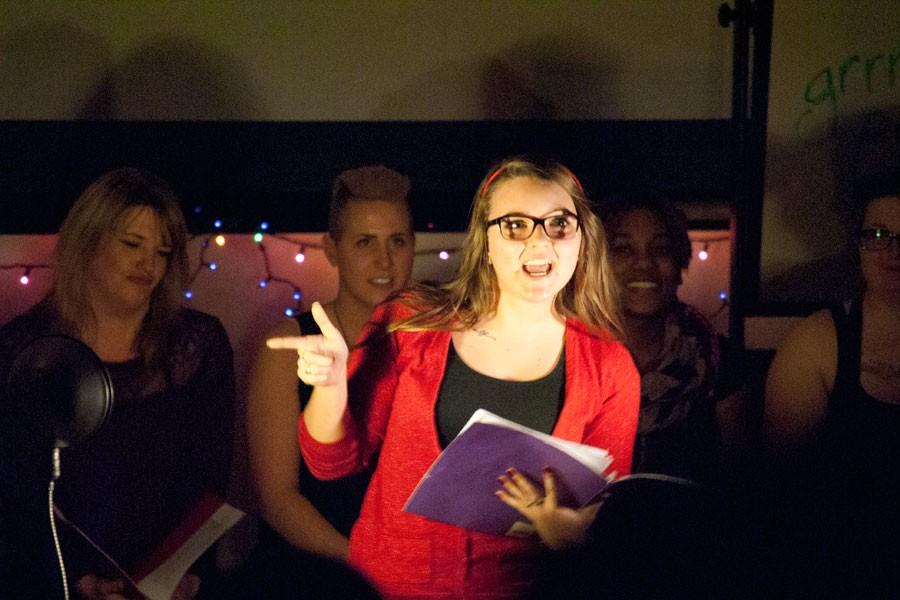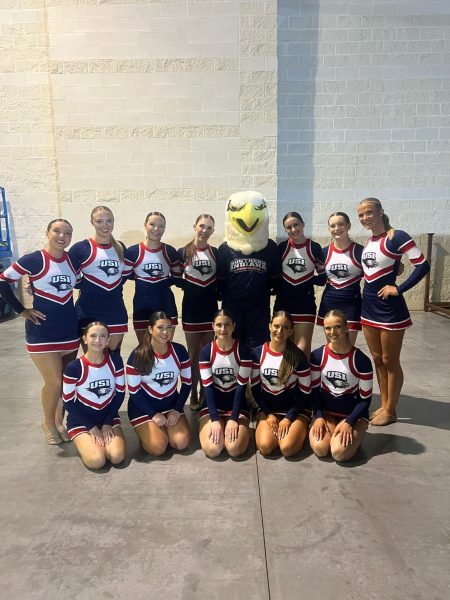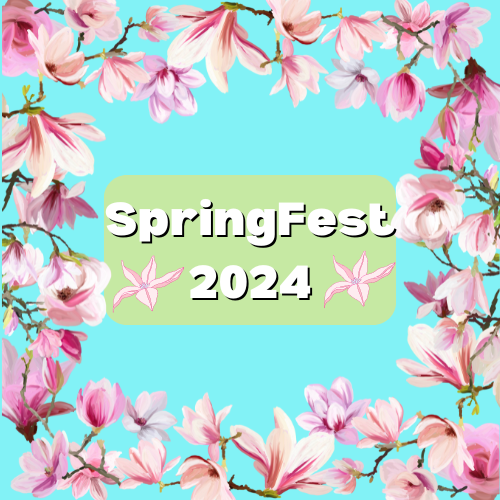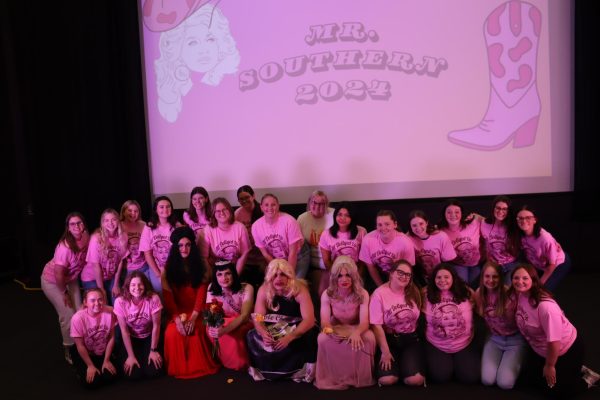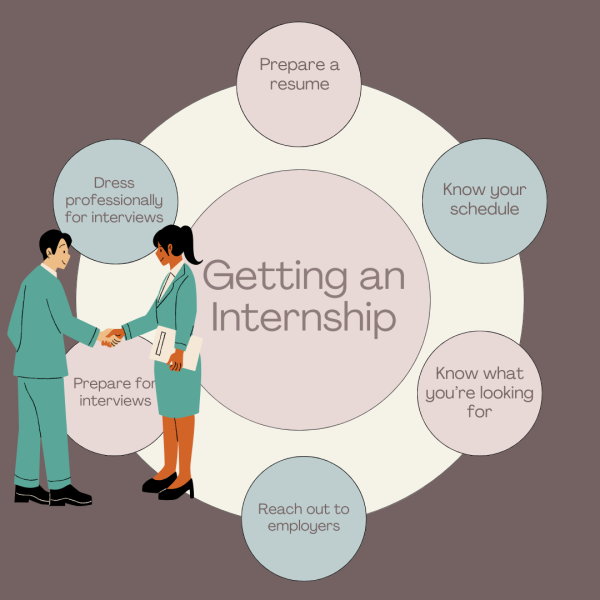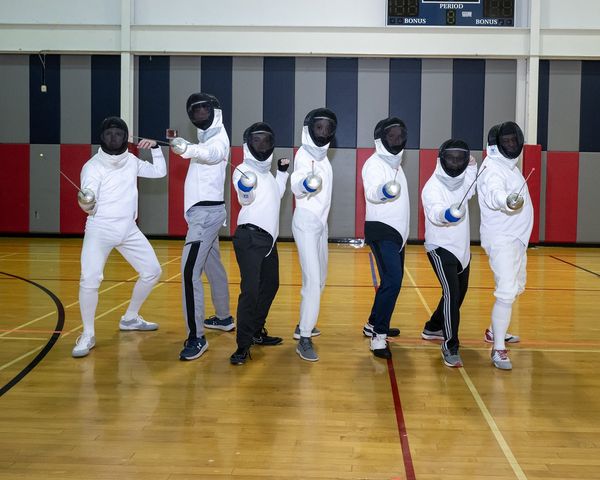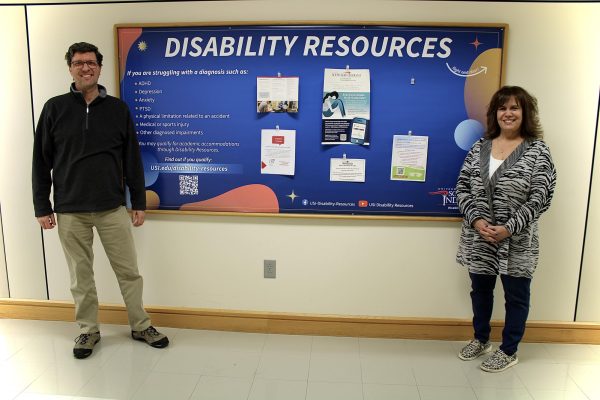Monologues shed light on domestic violence
Olivia Phelps discusses the nerves in the vagina during The Vagina Monologues Friday night in Forum II. This was the eighth year in a row where the university has presented on Valentine’s Day.
After describing the various types of sexual moaning from Irish-Catholic (“Forgive me!” while crossing oneself), to African American (“Oh, shit!”), to college student, (“I should be studying!”), Casie Mathies crawled on the floor, rolled over on her back and shook her legs in the air to demonstrate sexual pleasure while the audience roared with laughter at this year’s Vagina Monologues.
The alumna read “The Woman Who Liked to Make Vaginas Happy” and was one of 16 students, faculty and community members who read 19 of the monologues at 7 p.m. Thursday in Forum II.
This was Mathies’s third year performing at the Vagina Monologues.
Two years ago, she performed “Hair,” and last year, she read “The Flood.”
Mathies said she was originally nervous to moan while practicing the monologue for the corporate-lawyer-turned-sex worker who most enjoys “making women moan.”
“I never practiced this piece outside of rehearsal because my walls are really thin at my apartment,” she said.
Once she actually began moaning in rehearsals and making her cast members laugh, she stopped being nervous and eventually started getting excited to rehearse, Mathies said.
“In general, if I get nervous, if I make someone laugh, I feel way more comfortable,” she said.
Women should be proud of themselves, both in their everyday lives and in their sexualities, Mathies said.
“Before I came to college, I was super shy and super closed up, and I wouldn’t touch that monologue with a 10-foot pole,” she said. “Now here, three years later, I got to do the piece that scared the shit out of me and I killed it.”
Mathies has a few friends who are survivors of domestic violence and sexual assault, she said, which makes V-Day important to her.
One hundred percent of the proceeds from the monologues went to Willow Tree of Posey County, where Mathies is a board member and director of public relations and media and outreach coordinator.
This money can be used to pay for legal counseling for women who need restraining orders, transportation and housing for women leaving abusive partners, or to educate the public on violence against women, Willow Tree President of Melinda Roberts said.
Educating everyone, including men, about the subject is important because everyone needs to get involved in stopping sexual assault and domestic violence, the associate professor of criminal justice said.
“If anyone knows of someone, even if they don’t live in Posey County, and they need help, or they’re suffering from an abusive partner, or they’ve experienced rape or sexual assault, I encourage them to reach out to Willow Tree,” she said.
Roberts read “The Flood,” a monologue told from an older woman’s point of view about how, as a young woman, she embarrassingly secreted vaginal lubricant during her first kiss and how it made her afraid to have relationships or even think about her vagina until she was in her 70s.
“I grew up in a family where we didn’t really talk about those kinds of things, and I also didn’t know a lot about sex or sexuality. So I think I can resonate with this piece as well,” the interim director of gender studies said.
Roberts, who was raised by her grandmother, likes this piece because it gives her insight that she never had before.
“This piece brings about the idea that just because you age doesn’t mean you’re not a woman that you don’t have any kind of sexual feelings or connection to your femininity,” she said.
Roberts, who has been performing the monologues since 2000 and performing them at the university since 2009, has wanted to read “The Flood” for several years, but hadn’t gotten the chance because students get first pick on which monologues they read.
Women and girls should talk to each other about their vaginas because they need to understand their bodies, Roberts said.
“We shouldn’t stay quiet,” she said.

